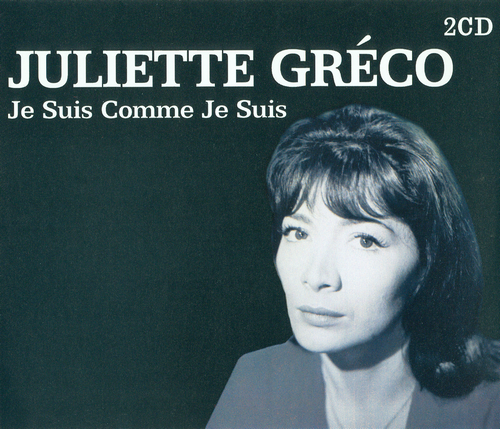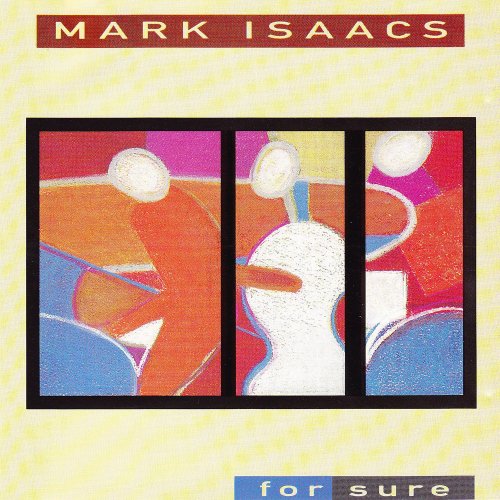Juliette Gréco - Je Suis Comme Je Suis (2CD Black Box) (2005) Lossless

Artist: Juliette Gréco
Title: Je Suis Comme Je Suis
Year Of Release: 2005
Label: Weton-Wesgram
Genre: Pop, Chanson
Quality: FLAC (tracks+.cue,log,scans)
Total Time: 61:31
Total Size: 245 Mb
WebSite: Album Preview
Tracklist: Title: Je Suis Comme Je Suis
Year Of Release: 2005
Label: Weton-Wesgram
Genre: Pop, Chanson
Quality: FLAC (tracks+.cue,log,scans)
Total Time: 61:31
Total Size: 245 Mb
WebSite: Album Preview
CD 1:
01. Sous Le Ciel De Paris
02. Si Tu T'Imagines
03. La Fourmi
04. Rue Des Blancs-Manteaux
05. Lers Feuilles Mortes
06. Je Hais Les Dimanches
07. Embrase-Moi
08. Je Suis Comme Je Suis
09. Les Enfants Qui S'aiment
10. Il Y Avait
CD 2:
01. Ca Va (Le Diable)
02. Les Dames De La Poste
03. Les Croix
04. Les Roulottes
05. La Fiancee Du Pirate
06. Coin De Rue
07. L'ombree
08. Je Mens
09. Barbara Soung
10. A La Belle Etoile
Muse to the Parisian literary scene of the '50s, godmother of songwriter-led '60s French pop, and a self-reinventing torch singer from the '70s until now, Juliette Gréco is one of the great French recording artists of the 20th century. Born in Montpellier in 1929, Gréco was classically trained at the Paris Opera as a youngster. Forced to flee Paris at the outbreak of the Second World War, and practically orphaned when her mother was jailed for her resistance to the Nazis in 1943, Gréco then sought refuge with her former French teacher in the St. Germain des Prés quarter of Paris.
In the later years of the war, the literary and artistic world of the Left Bank was flourishing, and Gréco became a fixture in this world, befriending Sartre and other writers of renown, and appearing in the theater and on a literary radio show. Her experiences of hardship in the war had influenced her politics and sowed the seeds for the great liberation she flaunted after the war, becoming the pinup for the so-called bohemian scene.
Gréco made an acclaimed debut as a singer in 1949, premiering songs with the words of such leading French poets as Jacques Prévert ("Les Feuilles Mortes"), Jules Laforgue ("L'Eternel Féminin"), and Raymond Queneau ("Si Tu T'Imagines") set to music by Joseph Kosma. In the new postwar songs, lyrics were privileged over the bigger orchestrations favored by singers like Edith Piaf; Gréco's intellectual bent made her the perfect interpreter for this new movement. Her singing style shared the dramatic enunciation of Jacques Brel and the droll delivery of Georges Brassens, her contemporaries in quite different musical scenes, while showcasing a sensuality all her own. Gréco released the song "Je Suis Qui Je Suis," again with words by Prévert and music by Kosma, two years later -- it was a huge hit for her.
In the later years of the war, the literary and artistic world of the Left Bank was flourishing, and Gréco became a fixture in this world, befriending Sartre and other writers of renown, and appearing in the theater and on a literary radio show. Her experiences of hardship in the war had influenced her politics and sowed the seeds for the great liberation she flaunted after the war, becoming the pinup for the so-called bohemian scene.
Gréco made an acclaimed debut as a singer in 1949, premiering songs with the words of such leading French poets as Jacques Prévert ("Les Feuilles Mortes"), Jules Laforgue ("L'Eternel Féminin"), and Raymond Queneau ("Si Tu T'Imagines") set to music by Joseph Kosma. In the new postwar songs, lyrics were privileged over the bigger orchestrations favored by singers like Edith Piaf; Gréco's intellectual bent made her the perfect interpreter for this new movement. Her singing style shared the dramatic enunciation of Jacques Brel and the droll delivery of Georges Brassens, her contemporaries in quite different musical scenes, while showcasing a sensuality all her own. Gréco released the song "Je Suis Qui Je Suis," again with words by Prévert and music by Kosma, two years later -- it was a huge hit for her.








